#sarah gristwood
Text


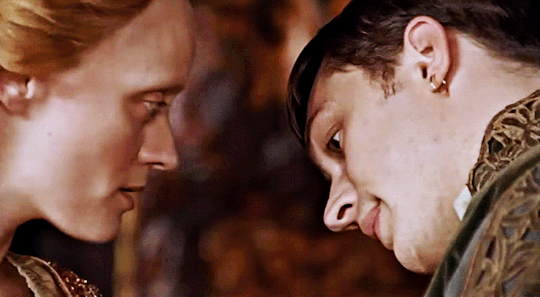

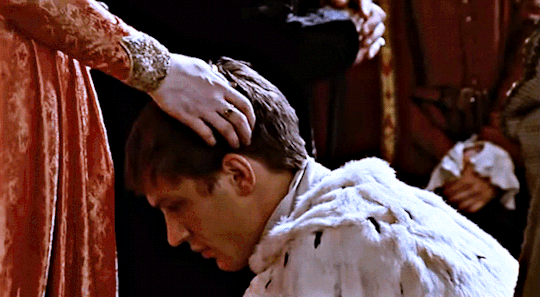

"Elizabeth’s relationship with Robert Dudley, Earl of Leicester, was perhaps the most important in her life. The savage possessiveness with which she wrote of him - ‘a creature of our own’, as she described him, with all the imperiousness of the royal ‘we’ - in no way diminished his importance in her eyes. For a woman so short of surviving blood relations, he was the nearest thing she had to family."
— Sarah Gristwood, Elizabeth and Leicester: The Truth about the Virgin Queen and the Man She Loved.
#they're such icons#it's always a treat to read about their compelling relationship#robert dudley#elizabeth i#queen elizabeth i#the virgin queen#anne marie duff#tom hardy#sarah gristwood#earl of leicester#litedit#tvedit#dailytvfilmgifs#booksociety#bookedit#other media#litdaily#periodedits#tvarchive#by jen
174 notes
·
View notes
Quote
Jane saw Guildford's lifeless body brought back, 'his carcass thrown in a cart and his head in a cloth'. An hour later it was Jane's own turn. On the scaffold the seventeen-year-old's dignified composure did crack at last as she struggled to adjust her clothing for the axe, and, with a scarf tied round her eyes, groped blindly for the block. 'I pray you despatch me quickly,' she begged the headsman.
The Tudors in Love (2022) / Gristwood, Sarah
32 notes
·
View notes
Text
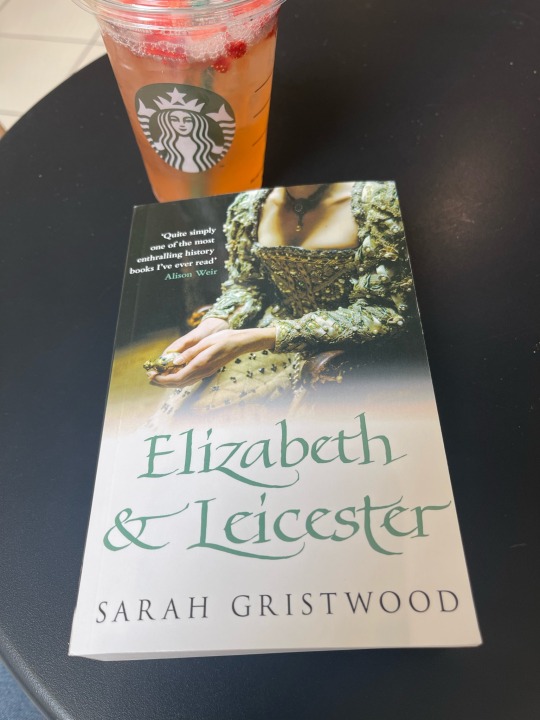
it’s here!! can’t wait to start reading this one 😁
11 notes
·
View notes
Photo

paco rabanne in fabulous frocks - jane eastoe + sarah gristwood (2008)
2K notes
·
View notes
Text
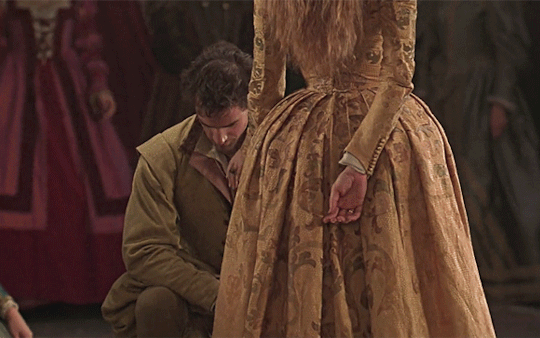
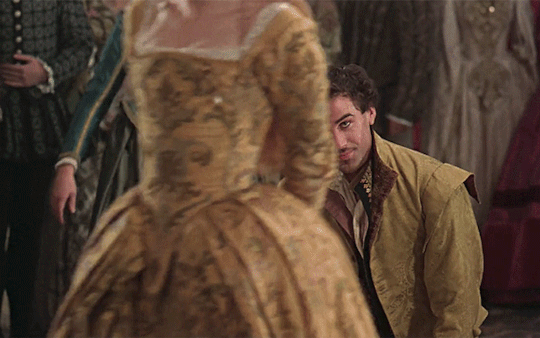
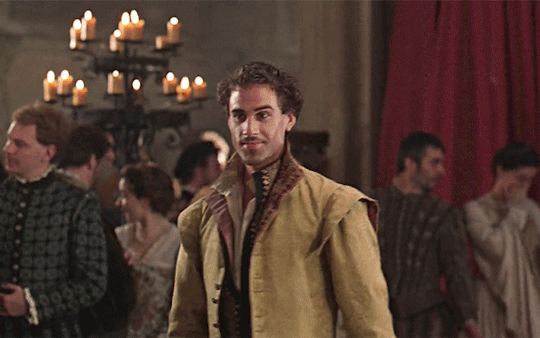

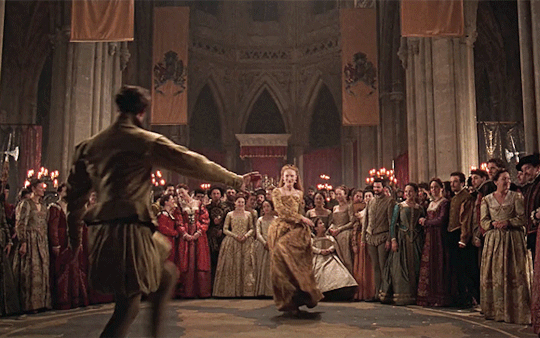
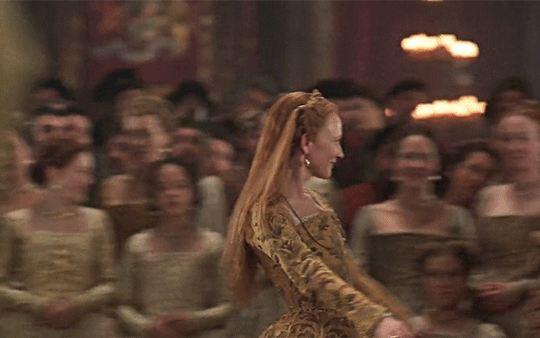
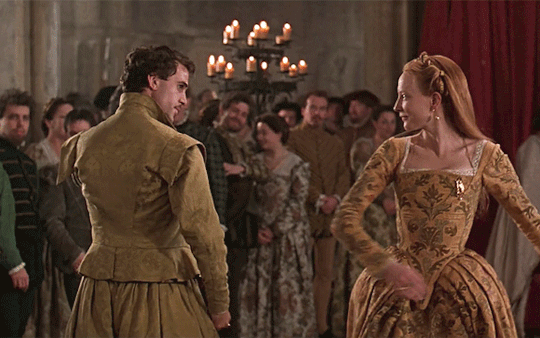
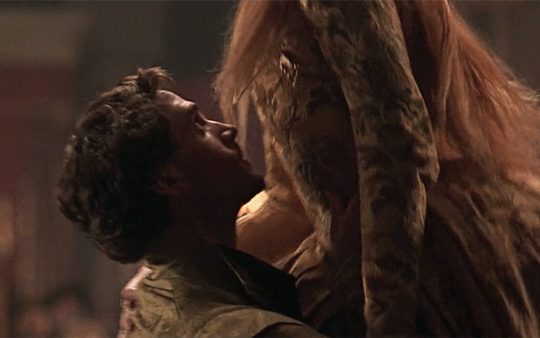
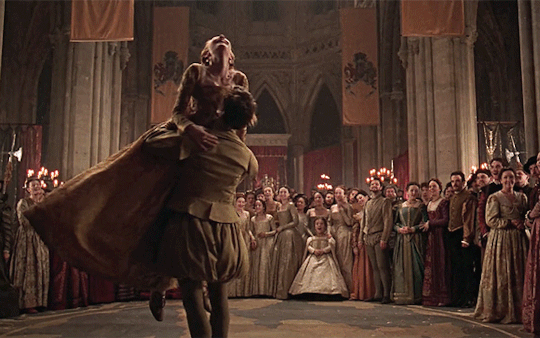
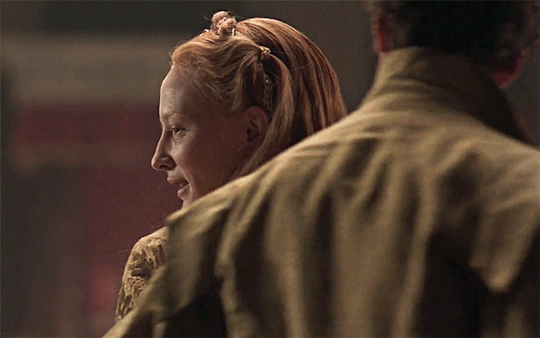
“She was twenty-five years old, vibrant and lively, with an ability to spin from imperiousness to intimacy that would keep a man guessing, pleasurably. If she was not beautiful then she had, like her mother, the ability to project the idea of it. Later in life, she told an ambassador that she had never in fact been a beauty, but had had the reputation of it in her day. ‘Comely rather than handsome, ’ the Venetian envoy had reported her a year or two before; ‘tall and well-formed, with a good skin, although swarthy, she has fine eyes.’ Robert too was ‘of a tall personage’, said the Venetian, who praised his ‘manly countenance’ though regretting his ‘somewhat brown’ complexion. He had hair and beard shading dark to auburn; the legs to stand up to the trying fashion for short breeches, with their padding and pinking, and their prominent codpieces; and the physique, when they danced together the daring Volta, to twirl Elizabeth high.” ⎯ Elizabeth and Leicester, Sarah Gristwood
#long post#perioddramaedit#perioddramasource#perioddramacentral#onlyperioddramas#weloveperioddrama#filmedit#elizabeth 1998#elizabeth tudor#robert dudley#cate blanchett#joseph fiennes#elizabeth x robert#elizabethan era#bess and robin#filmgifs#90's films#otp: for i have lived and so will die only hers#16th century#historical texts#tudor books#*gifs#*gifset#historical drama#gifshistorical#romancegifs#cinepix#bbelcher#otpsource#bblecher
144 notes
·
View notes
Note
Hello !
If you don't mind me asking,can you recommend some books that you have read that bettered your knowledge of historical things and such and at the same time were interesting?
These are just a few, Im not near my bookshelves at the moment so these are the ones I could remember.
Sex with Kings by Eleanor Herman
Sex with the Queen by Eleanor Herman
Royal Art of Poison by Eleanor Herman
Love and Louis XIV by Antonia Fraser
Marie Antoinette by Antonia Fraser
Charles II by Antonia Fraser
Six Wives of Henry VIII by Antonia Fraser
Dynasty by Tom Holland
SPQR by Mary Beard
Crusaders by Dan Jones
The Hollow Crown by Dan Jones
Game of Queens by Sarah Gristwood
The Royal Wardrobe by Rosie Harte
Do Let's Have Another Drink by Gareth Russell
Young Damned and Fair by Gareth Russell
Four Sisters by Helen Rapport
After the Romanovs by Helen Rapport
The Romanovs by Simon Montefiore Sebag
79 notes
·
View notes
Photo

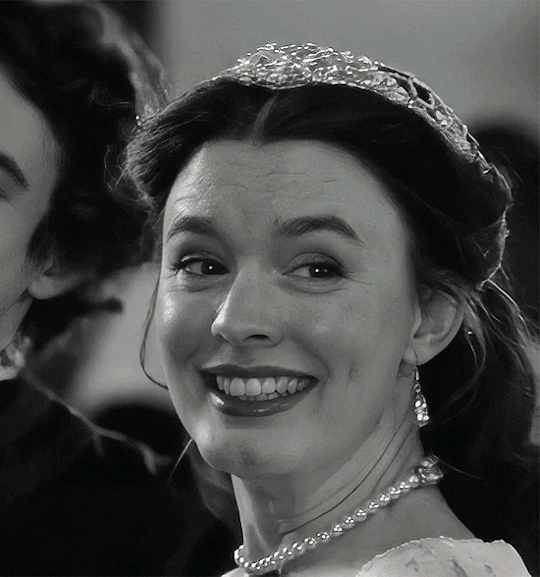
Making her first recorded appearance at the English court [during the Cheateau Vert masque in 1522] was Perserverance, she who would go down in history. A dark-haired figure; not beautiful, but polished to the glitter of a gemstone by a youth spent at the continental courts. An accomplished performer and markswoman whose arrows would indeed strike right to Henry's heart, but who would in the end be herself the one destroyed by the courtly fantasy. At the end of the evening, at a banquet of custards and candied fruits and gilded gingerbread and flavored spirits of wine, the masquers all divested themselves of their disguises. When Perseverance unmasked, it was revealed she was that newcomer to court, that expert performer. . . Her name was Anne Boleyn. - Sarah Gristwood
Anne Boleyn was neither saint nor villain; she was not even a particularly bad person. Her virtues overwhelmingly outweighed her vices. We have not yet troubled to look properly at her charities, her friendships and the tidal wave of compliments that were hers in the days before notoriety drowned her. We ignore her controversial attendance at a Requiem Mass for the butchered Cardinal Fisher, her locking of herself in her oratory and bursting into tears at the news of Katherine of Aragon’s death, or the commendable image of a woman horrified and disgusted by the burning to death of heretics. She was a mass of contradictions – much good, some bad – but in the end we must allow her this, for it reminds us that this extraordinary woman really lived. - Gareth Russell
#look at her laughing! passing sweet and cheerful 💗#anne boleyn#perioddramaedit#perioddramasource#historicwomendaily#history#historyedit#*
465 notes
·
View notes
Photo
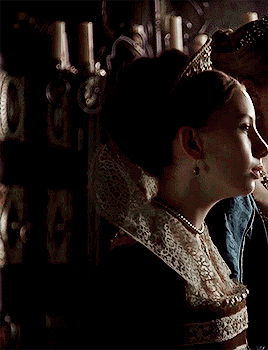

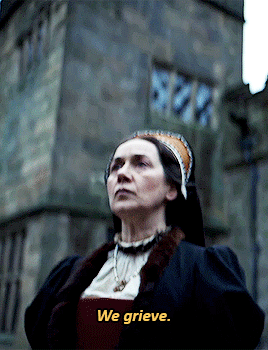

Different takes on how Elizabeth is shown dealing with her father’s death/dying.
THE TUDORS // BECOMING ELIZABETH
As a parent, Henry had one thing going for him (besides being there, alive) - his royalty. It was his name (not her mother’s unless you count her pride in her ‘most English” descent) that the adult Elizabeth would invoke frequently...[But] for the first half of the period - hardly more than a decade in all - that passed between Anne’s death and that of Henry himself, Elizabeth’s father was effectively an absentee from her life. (Sarah Gristwood, Elizabeth & Leicester)
In The Tudors, Elizabeth walks away from her last meeting with her father first without a second glance and as the audience we can sympathize, not only with her, but with Mary (who remains and cries moments after Henry exits), because of all the emotional trauma their father and his government have put them through. However, Becoming Elizabeth depicts Elizabeth as angry that the wheels of government do not stop to mourn her father, which is a choice the writers could make without turning heads, because the audience does not see her early upbringing and her mother’s fall so we don’t have the same emotional buildup as The Tudors. However, I think that both of these depictions together make up how Elizabeth felt and acted. Elizabeth was always aware that she walked a thin line being so close to the throne (even as a legally declared illegitimate child of the king). Her private feelings, unlike those of her sister Mary’s, were frequently masked as habit of pure survival. Therefore, putting on a sincere face of grief no matter how mixed her feelings were towards her father might not have been natural, but expected by the new regime and watched by those around her.
#becoming elizabeth#the tudors#elizabeth I#elizabeth tudor#perioddramaedit#period drama#tudorerasource#periodedit#historyedit#userbennet#gifshistorical#mary tudor#mary I#lady mary tudor#lady elizabeth tudor#tvfilmsource#tvfilmedit#aethelreds#theladyelizabeth#katherynparr#outrowingss#imjustasmith#anne boleyn#henry viii#userperioddrama#perioddramasource#alicia von rittberg#laoise murray#gifs: mine#my gifs
673 notes
·
View notes
Text
“The English queen’s letters of reproof after the death of Mary’s second husband, Lord Darnley, in 1567, and the taking of his supposed murderer Bothwell as her third, are as renowned as they are resounding. Their tone suggests not only an urgent anxiety that the fallibility of one queen regnant should not reflect on another, but perhaps also a sense that Elizabeth — so often compared to her disadvantage to the maritally minded Mary — was now vindicated in her celibate choice.”
Sarah Gristwood, "The Queen as Artist: Elizabeth Tudor and Mary Stuart," 104.
#mary stuart#mary queen of scots#mqos#elizabeth i#henry stuart#lord darnley#history#house of tudor#tudor dynasty#tudor era#tudor period#women's history#royal history#english history#early modern history#*quotes
9 notes
·
View notes
Photo

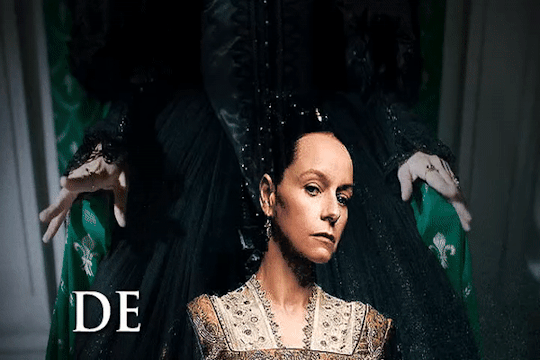
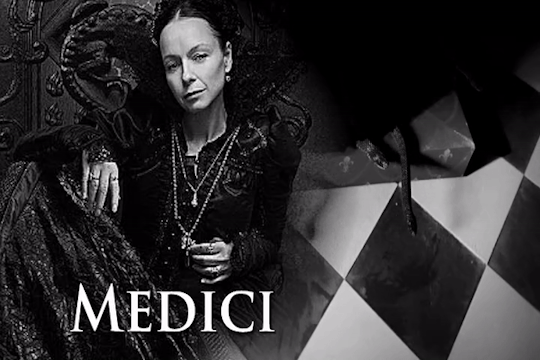
“Pitting her rivals against each other, she had emerged seemingly above the fray. She had become an operator. It was a triumph of her personal diplomacy.” Sarah Gristwood in Game of Queens:The Women Who Made Sixteenth-Century Europe
“She is a selfless, tireless negotiator for peace. … She is utterly dedicated to ensuring that her children’s rule is successful.” Una McIlvenna author of Scandal and Reputation at the Court of Catherine de Medici
“There’s this show calling her the ‘serpent queen.’ That really says it all. A snake is someone that will stab you in the back, that will always be in the shadows trying to get you. And that could not be further from the truth when it comes to Catherine.” Estelle Paranque author of Blood, Fire and Gold: The Story of Elizabeth I and Catherine de Medici.
150 notes
·
View notes
Text
“Henry announced his betrothal to Jane Seymour the day after Anne’s death and married her with indecent haste. Even Chapuys, on 18 May, noted public anger that the king was so happy ‘since the arrest of the whore’. Here, essentially, is the great problem for historians of these years: that Henry appears as either mutt or monster.”
— Sarah Gristwood, Game of Queens
6 notes
·
View notes
Text
Anne's chamberlain wrote that: 'as for pastime in the queen's chamber, [there] was never more. If any of you that be now departed have any ladies that ye thought favoured you [...] I can no whit perceive the same by their dancing.' Anne was particularly skilled as a musician, playing the lute, flute, and rebec, a skill she would have first learnt at the court of Margaret of Austria, who was a major patron of music. Even the unsympathetic George Cavendish would write that: 'when [Anne] composed her hands to play and her voice to sing, it was joined with that sweetness of countenance that three harmonies concurred.'
The Tudors in Love, Sarah Gristwood
11 notes
·
View notes
Photo

christian lacroix in fabulous frocks - jane eastoe + sarah gristwood (2008)
153 notes
·
View notes
Text
23 books in 2023
I was tagged by @motherofkittens94 Thank you very much! I really like reading, but I have a tendency to avoid books if I decided to read them. Now the year is closer to the end and I can give an almost certain list about what I read and what I want to read. I read the first 16 books (and some comics and other things) and I plan to read the books between 17-23
A. N. Wilson: Victoria: A Life
Tracy Borman: Matila: Queen of the Conqueror
Agatha Christie: They Do it with Mirrors
Alexander Larman: The Crown in Crisis
Nicola Tallis: Uncrowned Queen: The Fateful Life of Margaret Beaufort
Daisy Dunn: In th Shadow of Vesuvius: A Life of Pliny
Fannie Flagg: Fried Green Tomatoes at the Whistle Stop Cafe
Maggie O’Farrel: Hamnet
Giles Tremlett: Isabella of Castile: Europe's First Great Queen
Charles Dickens: Bleak House
Sylvia Barbara Soberton: Forgotten Tudor Women, Margaret Douglas, Mary Howard, Mary Shelton
Thomas Penn: Winter King, The Dawn of Tudor England
Jane Austen: Persuassion
Dan Jones: Summer of Blood, The Peasant's Revolt of 1381
Simone St. James: The Sun Down Motel
Sarah Gristwood: Arbella: England’s Lost Queen
Rivka Galchen: Everyone Knows Your Mother is a Witch
Philomena Cunk: Cunk on Everything: The Encyclopedia Philomena
Jon Klassen: The Skull: A Tyrolean Folktale
Derek Wilson: In the Lion’s Court: Power, Ambition, and Sudden Death in the Reign of Henry VIII
Agatha Christie: Murder ont he Orient Express
Agatha Christie: And Then There Were None
Henry James: The Turn of the Screw
So far my favourite is In the Shadow of Vesuvius, can't recommend it enought, beautifully written history.
I am tagging @leer-reading-lire @mrs-storm-andrews @we-artemis-atenea and of course everyone else who would like to do this list :).
11 notes
·
View notes
Text
February Reading Round Up! In reverse chronological order of finishing
Reinventing Revolution: New Social Movements and the Socialist Tradition in India by Gail Omvedt
Been meaning to read for a long long time, was serendiptiously a reading groups' choice and on my tumblr dash. Very good, detailed tour of movements that have complicated "class first" - caste, gender, peasant, tribal and their evolution theoretically and historically. Enjoyed how obviously socialist and critical Omvedt is of regressive trends and fair to the demands of popular organising that trouble us. I made so many notes, and intend to revist her perspective later when I've studied more. Where I was familiar with secondary literature like, caste I think she did an excellent job illustrating the limitations and need for Ambedakrite movements.
The Final Question by Chattopadhyay, Sarat Chandra
Bengali literature written in dialogue with the anti colonial movement's understanding of the new role of the Indian woman, this book is angry in the best way. Something very Dostoyevsky like in the arguments between the characters, but, instead of a religious worldview you have a deeply modern, materialist worldview being sharply advocated for against revanchist cultural trends in the novel's heroine Kamal. It holds up really well for a book in 1936, and its tenderness in handling every character's hopes and despair is deeply touching.
The Play Of Dolls Stories by Narain, Kunwar
Tumblr Mutual Book Club pick! Short Story collection by Hindi experimental poet and writer. Very evocative stories that have the best onion like layers of thematic interests. Oft satirical but never bleak, with the exception of the last story which felt like an odd addition to the set.
Her Body and Other Parties: Stories by Machado, Carmen Maria
Short Story collection as well, feminist and queer themes. I'd already read the Husband Stitch and was interested in what else the author could do, unfortunately not a lot more thematically. The stories are tightly written and gripping, only that they don't reveal much to me.
Dumb Luck by Vũ, Trọng Phụng
Tumblr Mutual Book Club pick as well. Relentlessly, satirically bleak, also colonial writing. This one is set in Vietnam when it was in French Indochina. Tetra said that every character is an antagonist and FR. Vicious, and a little too bleak for my taste, this is a more traditionalist critique of Vietnamese elite aping the French. The gender politics are absolutely bonkers, the translation I read does a pretty decent job of transferring the text's humor to modern idiom.
Vita & Virginia: A Double Life by Gristwood, Sarah
Biography of Virginia Woolf and Vita Sackwille-West, picked up on a whim because of my interest in Woolf's 'madness' and her romantic letters. Really enjoyed reading the complicated polyamorous love lives these literati had. Virginia's struggles with her illness are quite movingly portrayed. Illustrated with pictures of the beautiful homes and gardens the subjects spent their time in so fun for me! Enjoyed how conversant the author was with their literary output and its critical reception and impact. Made me want to finish reading my Woolf books.
The Stranger by Camus, Albert
I thought I'd like this more. The distanced narrator is very poorly executed, so the protagonist's redemption? revelations? towards the end of the novel kind of fell flat. Style over substance problem I think.
The Horizon (Sumer, #2) by Gautam Bhatia
Conclusion to The Wall, also one of those I wish I'd liked a lot more than I did. Very fast paced in its third act, well plotted but weakened by its repeated revelation of this character is ACTUALLY on this SIDE. Like, its done with every family member of the protagonist. Worldbuilding remains memorable if a bit predictable. Would make a better movie.
The Old Man and the Sea by Ernest Hemingway
Personally I love an old man vs a fish, even if it does not have the gay content Moby Dick promised. Excellent use of the novel for investigating the interiority of a man. It's been a short story kind of month I suppose.
Lady Chatterley's Lover by Lawrence, D.H.
I have already complained about how fascist this book is. Why does modern commentary elide on its very violent racism and sexism and homophobia? I don't think its erotic worldview offers much to not fascist post sex liberation readers lol.
The Idiot by Batuman, Elif
Sorry. Girl at Harvard was not compelling as expected, but I did get a lot from the third act where the protagonist confronts her love interest for real - honest writing that doesn't shy away from difficult conversations.
The Master and Margarita by Bulgakov, Mikhail
Stalin era Soviet satire (its a month for it!) Very conversant with Faust, which I had not read so that I think diminished my understanding of the book. Absurd, very Christian and very funny about the comedic aspects of Soviet life. Loved the ending, almost Tolkein like in its hope for pretty broken characters.
The World in a Grain of Sand: Postcolonial Literature and Radical Universalism by Majumdar, Nivedita
Postcolonial Lit: The Takedown. Incisive, excellent, gave me a lot of books I want to try that the author points to as bucking the trend of compliance to particularist, oft parochial and usually defeatist understandings that dominate the genre.
Giovanni's Room by James Baldwin
also Bookclub pick. Devastating. Very effective use of the limited POV to illustrate the way shame damns love. Every few pages wrecked me. Tight and sparing with characterisation + description, but delirious with how emotionally close you ride with the protagonist. Best book I have read in a while.
30 notes
·
View notes
Note
Hi Duchess,
centuries ago, could there be a crown princess ever instead of a crown prince?
In some kingdoms, it would gave been allowed. France had Salic law which prohibited any woman or their line taking the crown. England was reluctant to have a Queen, Matilda was the first woman to claim the throne but she was denied it, her claim passing to her son only after years of civil war. Eventually the English accepted Queens. Women could be named heirs but in some instances opposition from other claimants or noblity disrupted the succession. Around the 15th Century, female rule began to get accepted and by the 16th, chunks of the world were ruled over by Queens. There is a book I recommend on this and its called Game of Queens by Sarah Gristwood.
19 notes
·
View notes